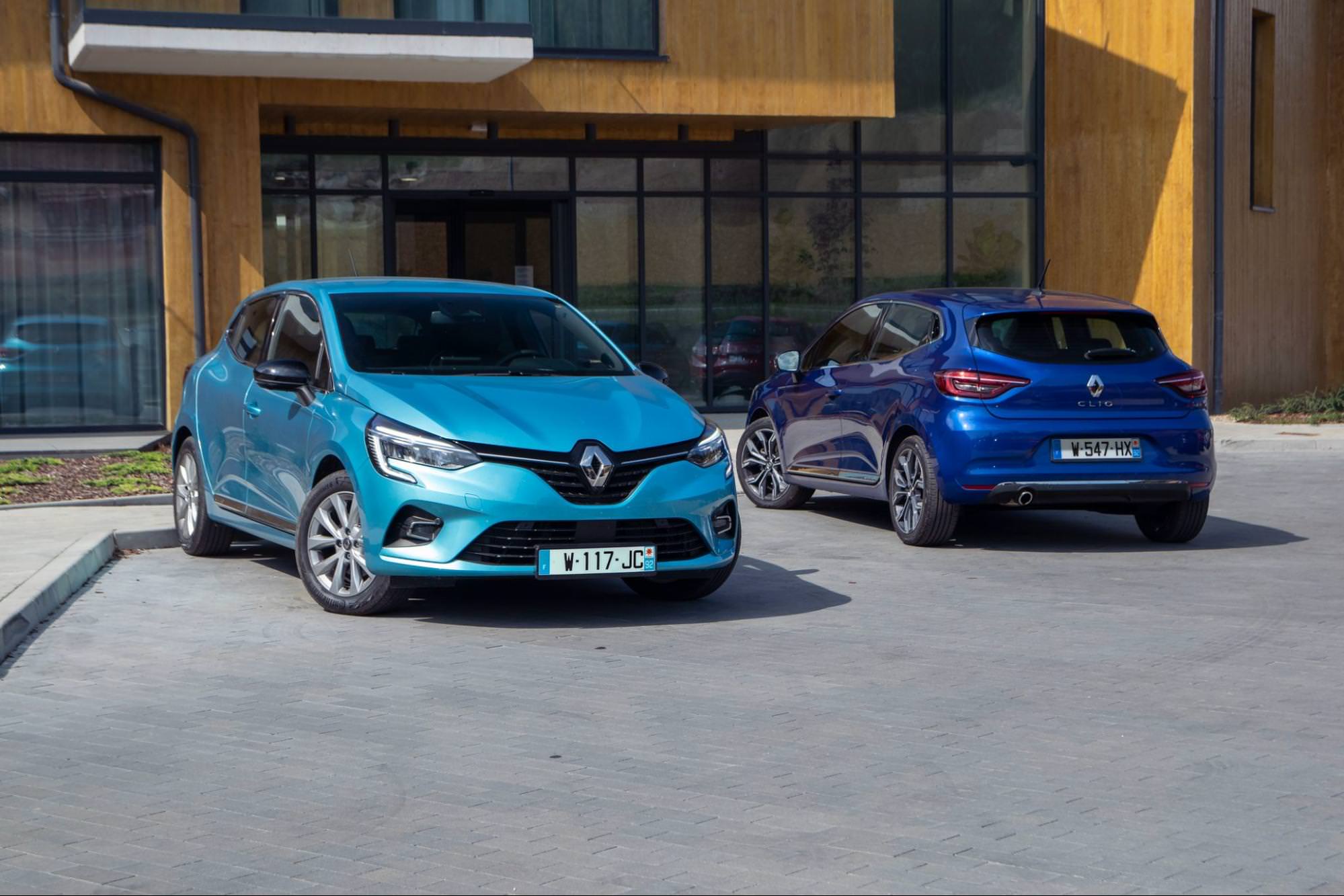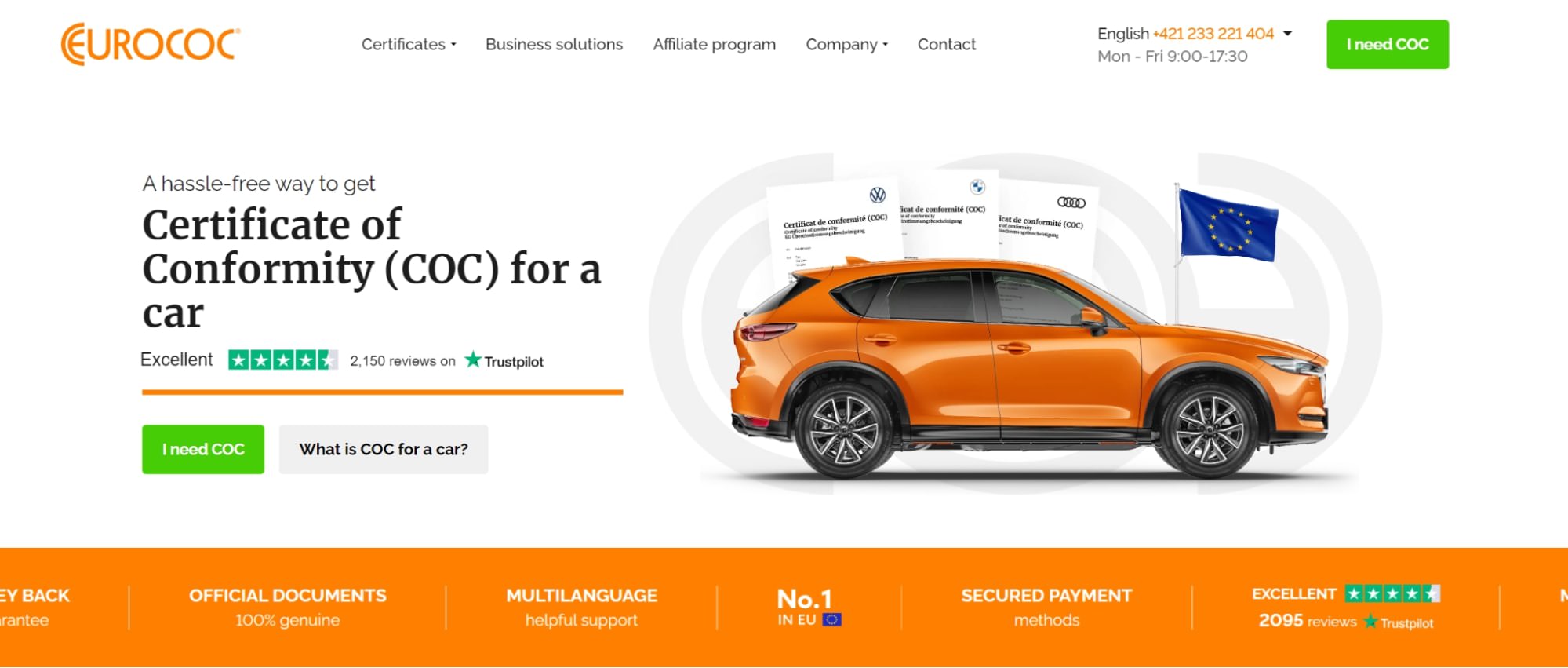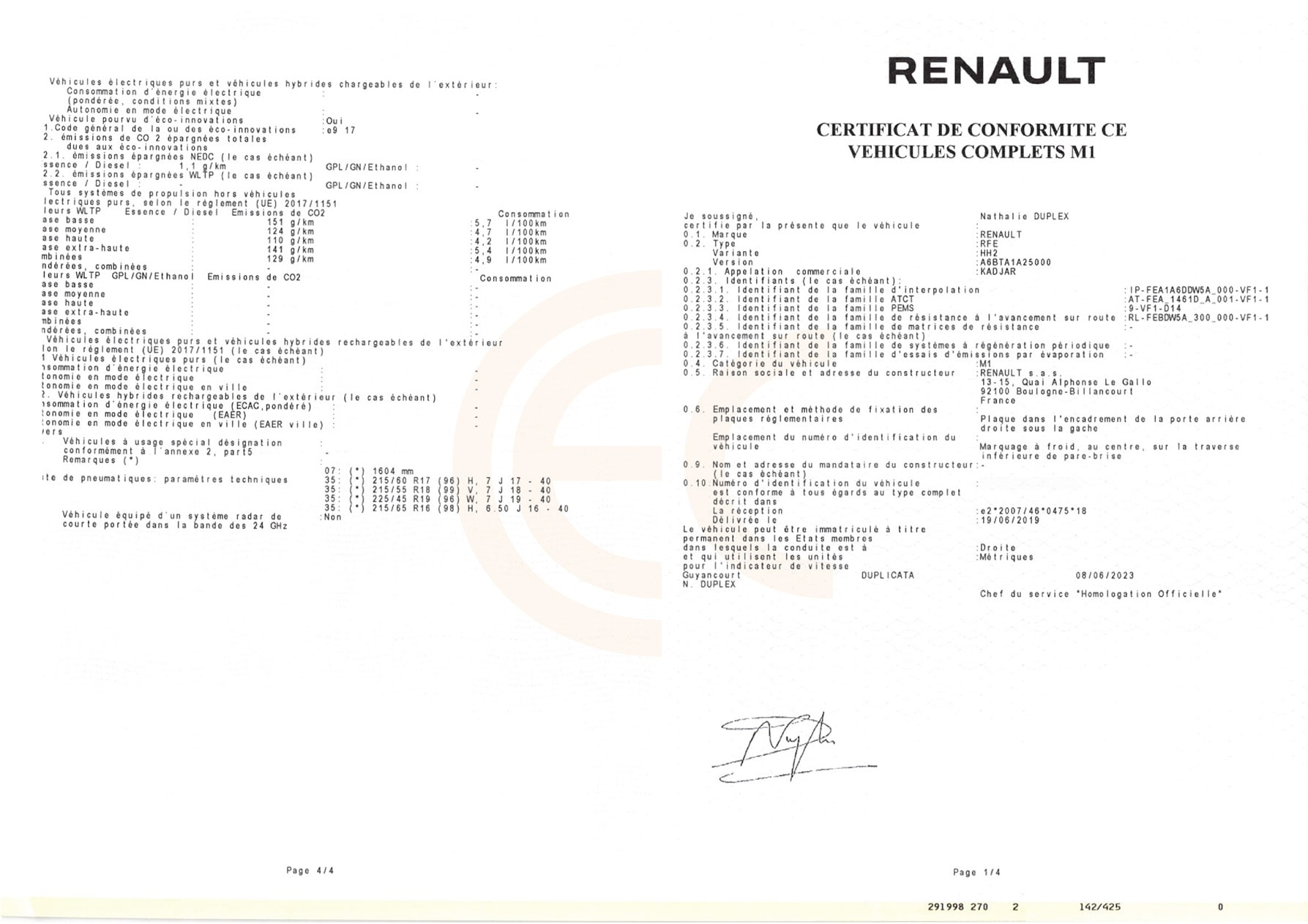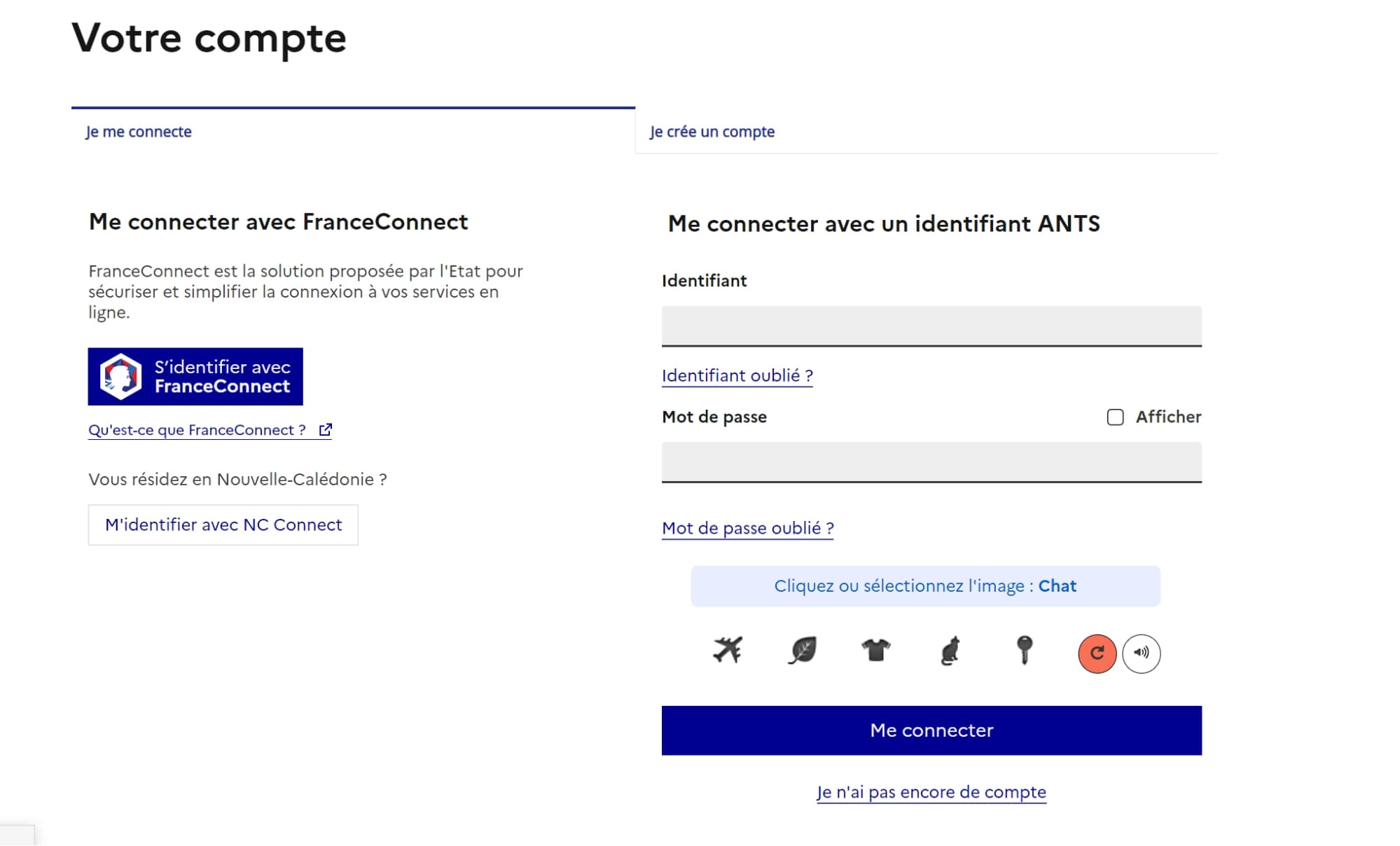- Blog
- How to Import a Car to France?
How to Import a Car to France
Learn how to easily import cars to France with the eCarsTrade guide for used car dealers. Read all about the necessary documentation and the step-by-step process.

eCarsTrade has a long history of working with French used car dealers. In that time, we’ve gathered relevant and valuable knowledge on importing cars to France without any problems or delays.
Keep reading for an up-to-date guide for importing cars to France. It includes a list of needed documentation, a step-by-step process, and even a frequently asked questions section for a smooth importing process.
Get to know the French car market
France is an especially attractive market for used cars because of its audience. Did you know that France is one of the top five imported car-buying countries in the world? Along with the US, Germany, mainland China, and the United Kingdom, it accounted for 47.3% of all worldwide spending on used cars in 2022!
Other data shows that French used car buyers prefer imported to domestic, with as much as 54% percent of France’s used vehicles being imported cars.
Market facts like these are really helpful when you’re building a dealership business in France. You can do some more research into which particular cars the French like to buy and sharpen your importing strategy.

French import regulations
Importing cars to France from Germany, Italy, Spain or other EU countries is relatively easy, as long as you have the right paperwork ready. One thing to note is that any car that gets imported into the country needs to be registered and have a French plate within six months of arriving in the country.
In the next section of this article, we’ll cover the paperwork the car needs to be imported into the country without problems.
Documentation required for car import to France
The documents you need to import a car from an EU member state have to do with proving the car’s ownership, your legal right to sell it in France, and the car’s compliance with French safety and environmental protection regulations.
-
Registration documents
You’ll need the original registration document from the country the vehicle is imported from. All cars on eCarsTrade come with their original registration documents, which you will sometimes need to officially translate into the language of your import country.
-
Proof of identity
To prove that you have French residency, you’ll need a valid passport or ID and a utility bill with your address on it. You’ll also need business registration documents proving that you may sell cars in France.
-
Technical Inspection Certificate (Contrôle Technique)
If the car is over four years old, you’ll need to take it to a registered garage and do a contrôle technique, or technical inspection.
The inspection must happen within six months of the car arriving in the country. Without this certificate, you won’t be able to register the car in France.
-
Certificate of Conformity (COC)
A Certificate of Conformity is one of the most important documents. It confirms that the cars comply with current regulations, such as the CO2 emissions standards.
Keep in mind that French cars on eCarsTrade almost never come with a COC, so you can either contact the manufacturer’s base in France to obtain it or use an online service, such as EuroCOC, to get the document. In any case, expect to pay a fee to get a COC.
 Sites like EuroCOC offer an easy way to obtain the COC
Sites like EuroCOC offer an easy way to obtain the COC
-
Tax certificate - Quitus Fiscal
You will need to obtain a tax certificate from your local tax office in France confirming the vehicle's VAT tax clearance. The certificate is called quitus fiscal.
You can obtain this document in person by going to the Centre des Impots with the car’s original registration documents and proof of purchase.
Sometimes, you can also obtain it online, but you’ll need to check with your local tax office. This document is free of charge.
-
Fiscal rating
To register a vehicle in France, you need to calculate its 'fiscal rating' or 'puissance fiscale' (PF).
This is derived from the vehicle's CO2 emissions and engine power using the formula:
PF = (CO2/45) + (P/40)^1.6
Where CO2 is the emissions in g/km, and P is the engine power in kW.
Convert horsepower (HP) to kW using 1 HP = 0.736 kW if needed. The result gives you the administrative 'chevaux fiscaux' rating required.
You can determine your vehicle's CO₂ emission level by using the online simulator provided by ADEME, the French environment and energy management agency.
Taxation, fees, and other useful information for car imports to France
Taxes & VAT
If you’re importing a used car from within the EU, you will still need to declare VAT in your country. You will also need a document called Quitus Fiscal that proves the VAT and customs taxation are cleared, and there is no debt tied to the car.
Several other taxes are also imposed, mostly on new vehicles, but the only notable tax on second-hand vehicles is the taxe régionale (regional tax).
The taxes depend on a number of factors, notably engine size and emission rating. They can be very substantial.
Simulateur du coût du certificat d'immatriculation helps you calculate the estimate of all taxes in the process of obtaining new registration papers.
Car paperwork agencies
As was the case with importing a car to Portugal and car imports to Italy, specialized car paperwork agencies also exist in France.
Agencies of this kind are responsible for completely taking over the import process so that you, as a car trader, can focus on your business and not on the bureaucracy of importing.
Step-by-step guide: From purchasing a vehicle to import
The procedure for importing a vehicle to France is easiest when you simply follow the sequence of documentation you need. Here’s a good way to do it:
Find exceptional vehicles from France's major metropolitan areas!
Browse all car auctions from France1. Buy your car at eCarsTrade auctions
eCarsTrade has a selection of thousands of used cars from the EU to satisfy the needs of any dealership and provides an easy way to buy used cars from France, Belgium, Netherlands, Germany, Luxembourg and other EU countries.
Our prices are usually VAT-excluded, and we have dedicated customer service to advise you on the right documentation for your car, such as the infamous COC.
2. Ensure the car has the necessary documentation
You’ll receive a detailed invoice from us as well as all the available car documentation. If the COC is not included in this documentation, ensure you obtain it before initiating the importing procedure.
 A COC is necessary for a successful importing and registration process
A COC is necessary for a successful importing and registration process
3. Organize transportation to France
After purchase, the car can be picked up at the eCarsTrade’s facility. You can pick your vehicle up by organizing transportation from our yard to your dealership or let us organize the delivery straight to your parking lot. Simply ask your Account manager for a custom delivery quote.
4. Obtain a Fiscal certificate
Obtain a fiscal certificate or Quitus Fiscal by taking the vehicle's original registration documents and proof of purchase to the Centre des Impots.
5. Pass a technical inspection upon arrival to France
If the car is more than four years old, you’ll need to take it to a registered garage in France for a contrôle technique to obtain a certificate that proves the car is roadworthy and technically safe for driving.
Make sure to bring with you the car’s original vehicle registration document. To locate a nearby vehicle inspection center, visit the UTAC website and choose your region on the interactive map provided.
6. Get the car registered
Remember, you’ll need to get the car registered within six months of entering France. To do this, you’ll need to fill out the form called Demande de certificat d'immatriculation, also known by its former name of Carte grise.
The process can be completed online, on the Agence nationale des titres sécurisés website. Beforehand, you’ll need to register at France Connect.
 For a simple registration process, fill out the online form
For a simple registration process, fill out the online form
For detailed instructions of this process, please check the official website of the French administration.
You will need the following documents:
- Proof of residence/address (for example, utility bill)
- Proof of purchase (invoice)
- Foreign registration documents
- Côntrole technique certificate, if required
- Certificate of Conformity
- Fiscal certificate
You will need to pay a fee based on the engine power of the vehicle.
After you have done this process, you will be issued a temporary vehicle registration document (certificat provisoire d'immatriculation - CPI), which allows you to drive the car for one month.

7. Get new license plates
Lastly, you will need to make new license plates (plaques d'immatriculation).
And with that, the importing process is completed and your car is officially legal in France!
FAQ
► Does the importation process differ for new vs used cars?
The process differs in a few ways. Cars older than four years need a technical inspection to confirm they are road-worthy, while new cars do not. New vehicles also require additional taxes.
► After winning an eCarsTrade auction, can I count on support and tips for importation?
The eCarsTrade sales process doesn’t stop after the purchase. Count on us for advice on obtaining the right documentation and tips for handling the importation process safely and successfully. We frequently work with dealers in France, so we have recent information about the process.
► Are taxation and importation processes different while importing a car from a non-EU country?
Yes, you’ll need to pay different customs and taxation amounts for cars imported from outside the EU. The technical inspection process will also have extra steps, particularly for cars imported from the UK that have driver commands on the right-hand side.
For a no-hassle importing process to France, work with eCarsTrade
This guide has laid out all the information you need to import cars to France. We’ve covered the necessary documentation, outlined a step-by-step process, and answered questions customers usually have about importing cars to France.
Remember, eCarsTrade has years of experience working with French used car dealers, and we will support you in handling the importing process with ease. Have a look at our used car offer today, and start importing EU cars to your dealership quickly and safely.
Importing vehicles from Europe can be complex, but eCarsTrade is here to simplify the process. Learn how to:



